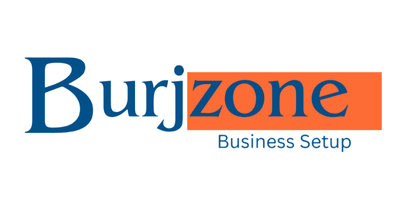Our Blog
Home / Blog
Bookkeeping Best Practices for UAE Startups: From Dubai Marina to Ajman Industrial Areas
Bookkeeping is the backbone of every successful business, especially for startups operating in the UAE’s highly regulated environment. Whether your business is based in Dubai Marina, a Sharjah freezone, or an industrial area in Ajman, maintaining clear, accurate, and up-to-date financial records is crucial for growth, compliance, and long-term sustainability.
This article outlines the most effective bookkeeping practices tailored for UAE startups to help avoid penalties, manage cash flow, and prepare for future audits or funding rounds.
1. Why Bookkeeping Is Essential for UAE Startups
In the early stages of business, many entrepreneurs overlook bookkeeping while focusing on sales and operations. However, in the UAE, poor financial records can lead to:
-
Fines from the Federal Tax Authority (FTA)
-
Delays in VAT filing and corporate tax reporting
-
Issues with trade license renewal or bank financing
-
Inability to track business performance accurately
Startups registered in Dubai, Sharjah, or Ajman are expected to maintain proper records from day one to meet the legal and financial requirements under UAE law.
2. Use a Separate Business Bank Account
One of the first steps in clean bookkeeping is to open a dedicated business bank account. This keeps personal and business expenses separate and allows clear tracking of:
-
Income from clients or sales
-
Business-related payments
-
VAT transactions
-
Salary and expense reimbursements
Most UAE banks require trade licenses and office documentation to open an account—particularly in Dubai Mainland or Sharjah Freezones.
3. Choose the Right Accounting Software
Modern accounting tools simplify recordkeeping and reporting. For UAE-based startups, choose software that includes:
-
VAT support in compliance with UAE law
-
Cloud access for remote teams
-
Real-time dashboards
-
Multi-currency options
-
Integration with POS, payroll, or e-commerce platforms
Popular options used by startups in Dubai Marina, Ajman Freezone, and Sharjah Media City include QuickBooks, Zoho Books, and Xero.
4. Record Transactions Promptly and Accurately
Startups should update their books weekly or monthly at minimum. Delays or missing entries can lead to:
-
Cash flow confusion
-
Incorrect tax reports
-
Missed invoice payments
-
Poor business decisions
Keep digital records of all receipts, invoices, and supplier payments—even if your business is still in a pre-revenue phase.
5. Reconcile Bank Statements Regularly
Reconciliation is the process of comparing bank statements with your books. Do this at least once a month to:
-
Catch unauthorized or duplicate transactions
-
Ensure all income and expenses are recorded
-
Prepare for VAT filing or audit reviews
This is especially important for startups operating in Ajman Industrial Areas or Dubai Freezones, where activity levels fluctuate during growth.
6. Track Receivables and Payables Carefully
Delayed collections or unpaid bills can damage your startup’s cash flow. Use your bookkeeping system to:
-
Monitor customer payments and due dates
-
Set reminders for outgoing payments
-
Generate aging reports for follow-ups
Cash flow mismanagement is one of the top reasons startups in Sharjah and Dubai fail—proper tracking helps avoid this.
7. Prepare for UAE Tax Requirements Early
With VAT already in place and corporate tax now applicable, startups must ensure their books are:
-
Structured according to FTA guidelines
-
Backed with valid tax invoices
-
Supported by clean transaction logs
-
Ready for tax registration and returns
Whether your license is under Dubai DED, Shams (Sharjah), or Ajman Freezone, poor bookkeeping can result in heavy penalties.
8. Consider Outsourcing to Bookkeeping Professionals
For early-stage businesses with limited time and expertise, outsourcing is often the smart move. Professional bookkeepers in the UAE offer:
-
Accurate, compliant bookkeeping
-
Monthly and quarterly reports
-
Tax return support
-
Cloud-based access and document storage
They’re especially helpful for founders based in remote zones or industrial areas like Ajman, JAFZA, or Hamriyah Freezone, where in-house teams may not be feasible.
Bookkeeping is not just about recording numbers—it’s about giving your startup a clear view of its health and future. Whether you’re working from a co-working space in Dubai Marina, a warehouse in Ajman Industrial Area, or a media office in Sharjah, maintaining clean, timely, and accurate financial records will help your business stay compliant, attract investors, and grow with confidence.
#BookkeepingUAE #StartupAccountingDubai #AjmanIndustrialBusiness #SharjahFreezoneFinance #DubaiMarinaStartups
#VATReadyBooks #UAEStartupTips #AccountingForStartupsUAE #SmallBusinessBookkeepingUAE #BusinessComplianceUAE
